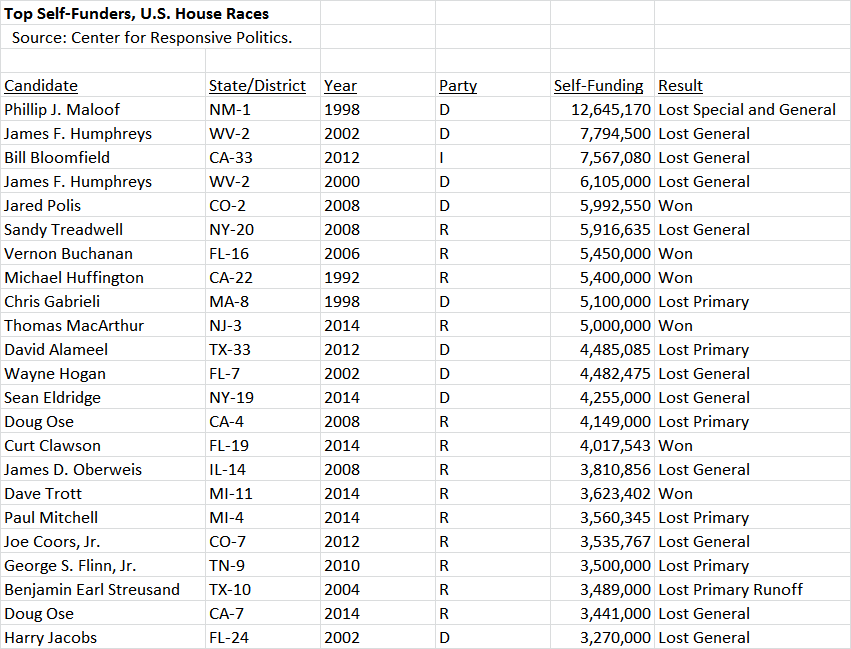Today, I am pleased to present the following guest post from Adam Pagnucco:
CD8 residents are in the midst of an historic election, not merely because the congressional seat is opening up for the first time in fourteen years. What makes it historic is that one candidate, Total Wine co-owner David Trone, is on pace to shatter spending records in local races. In fact, he may wind up being the top self-funder in a U.S. House race anywhere in the country for all time.
Since announcing for Congress a month ago, Trone has deluged CD8 residents in mail, digital ads, paid social media, television commercials and more. Our sources estimate that Trone has spent roughly $2.5 million on television and radio ads alone through the end of February. (That’s about five times what Kathleen Matthews has spent.) Throw in the cost of mail, digital, staff, vendors and campaign expenses and Trone has probably spent at least $3 million in one month of campaigning. That puts Trone on pace to spend $10 million – and probably much more – by the end of the primary.
How does that stack up against expenditures in other prominent local races?
We added up spending totals of recent competitive races for Governor, U.S. Senate, U.S. House and Montgomery County Executive contests. For Governor, we included Lieutenant Governor and slate accounts and deducted transfers between them. Primaries and generals are listed separately unless either one was non-competitive, in which case we combine them and list them as “both.” The data appears below.
Trone’s spending could eventually be comparable to some gubernatorial races. He probably won’t touch Bob Ehrlich’s total as an incumbent in 2006. But he could approach the totals of Martin O’Malley’s two races and the amount spent by Anthony Brown in the 2014 primary. He will almost certainly exceed what Ben Cardin and Michael Steele spent in their 2006 U.S. Senate race. And he will blow away any candidates in U.S. House and Montgomery County Executive races in recent years.
Trone’s campaign is almost entirely self-funded. He has said that he will spend “whatever it takes” to win. How will he compare to other self-funders in U.S. House races? The Center for Responsive Politics periodically releases estimates of self-funding. Below is a compilation of everyone we can identify who has contributed at least $3 million to their own campaigns, which is roughly the level Trone has so far given to his.
Self-funders come from both parties, often run in big states and usually lose. The combined record of the above candidates is 6-18. Phil Maloof, the leading self-funder, should have an asterisk next to his name because he lost both a special election and a general election to future Congresswoman Heather Wilson in the same year. (Interestingly, Maloof’s family derived part of its fortune from beer distribution.) If Maloof is discounted from the above list, David Trone could well be the top self-funder in a U.S. House race of all time, anywhere. Even including Maloof, Trone could still be number one.
The Big Question in CD8 is . . . will it work?


